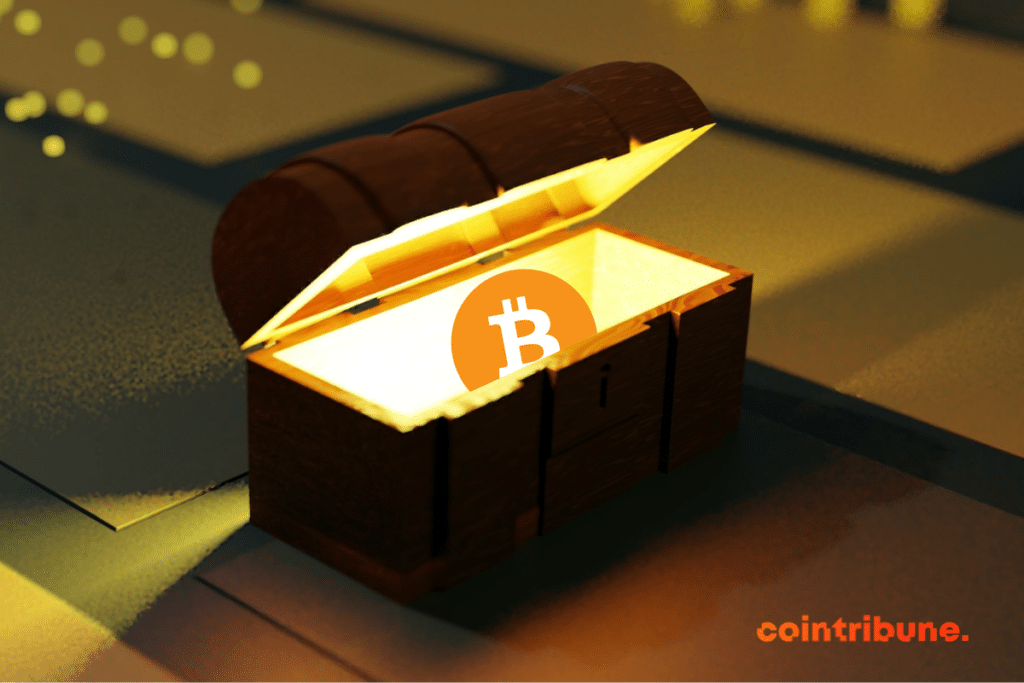🇪🇺@Isabel_Schnabel: The ECB is very unlikely to ever buy Bitcoin. #AskECB https://t.co/jpwUtuKFBS
— European Central Bank (@ecb) January 10, 2024
A
A
Buying bitcoin for the central bank? 'Very unlikely' according to the ECB
Wed 17 Jan 2024 ▪
5
min read ▪ by
Getting informed
▪
Regulation
Asked on Twitter, the ECB deems it very unlikely to ever acquire bitcoin. However, the idea of adding bitcoin to the balance sheets of central banks is gaining ground in the United States.

The ECB has always been opposed to bitcoin
At the end of 2023, the ECB published an article on the Central Bank’s blog, announcing the imminent end of bitcoin. Two economists predicted a sustained decline in its value, which, according to them, would inevitably lead BTC into oblivion. However, the price quickly rebounded, exceeding $40,000 and sparking renewed interest from the media and investors. Above all, the recent acceptance of a bitcoin ETF by the SEC definitively revived the speculation race around bitcoin at the beginning of the year.
On January 10, the ECB organized a Q&A session on X (formerly Twitter), through Isabel Schnabel, a member of the Executive Board of the European Central Bank. The occasion revisited the institution’s position towards bitcoin. When asked by a user on this topic, the German economist responded very clearly: “It is very unlikely that the ECB will ever buy bitcoin”.
Bitcoin VS Digital Euro
Indeed, everything seems to oppose the euro and bitcoin. The euro is a recognized currency with legal tender. Whereas bitcoin comes from private initiative and a very slow but growing adoption phenomenon. Even more so, bitcoin is programmed to be limited to 21 million units. A characteristic that has led it to be compared with gold, of which it could be a digital replica.
The euro, on the other hand, is inflationary by design, which allows for public policies to be financed through debt. A precious tool that allows states to invest, and therefore, to steer their economies over the long term. Thus, bitcoin will probably never replace the euro, just as gold is not destined to replace the dollar. This is also reminded by the ECB in a second tweet:
“The digital euro is a public currency issued directly by the European Central Bank. Bitcoin is different: it is a speculative asset that does not fulfill the characteristics of money.”
Will Central Banks ever add bitcoin to their balance sheets?
Today, some consider bitcoin as a digital equivalent of gold. Their argument? Similar properties: hard to obtain, available in limited supply, and it is a trace of the work done in the past. In 2022, a US senator had thus advocated converting part of the FED’s assets (the equivalent of the ECB in the United States) into bitcoin: “Traditional banks will eventually integrate digital assets, especially Bitcoin, alongside the US dollar and other fiat currencies” Cynthia Lummis had declared.
As a reminder, the ECB holds about 500 tons of gold, worth approximately 28 billion euros. For comparison, the FED owns 8,133 tons. A sign that this “barbarous relic” continues to play an important role in the global economy. In this regard, almost all European countries maintain significant gold reserves through their national central banks. The Bank of France thus keeps more than 2500 tons of gold in its vaults.
However, bitcoin is becoming progressively more widespread, as evidenced by the recent ETFs promoted by Blackrock. Could it chip away at gold’s status as a universal store of value? As it gains institutional legitimacy, one can at least consider that, one day, the question of BTC purchase by central banks will be posed. Especially since the BRICS are closely interested in this alternative to gold.
Maximize your Cointribune experience with our "Read to Earn" program! For every article you read, earn points and access exclusive rewards. Sign up now and start earning benefits.
A
A

Fascinated by the history of Bitcoin and the cypherpunk movement, I think that citizens must reinvest in the field of currency. My goal? To democratize and make visible the potential of blockchain and cryptocurrencies.
DISCLAIMER
The views, thoughts, and opinions expressed in this article belong solely to the author, and should not be taken as investment advice. Do your own research before taking any investment decisions.